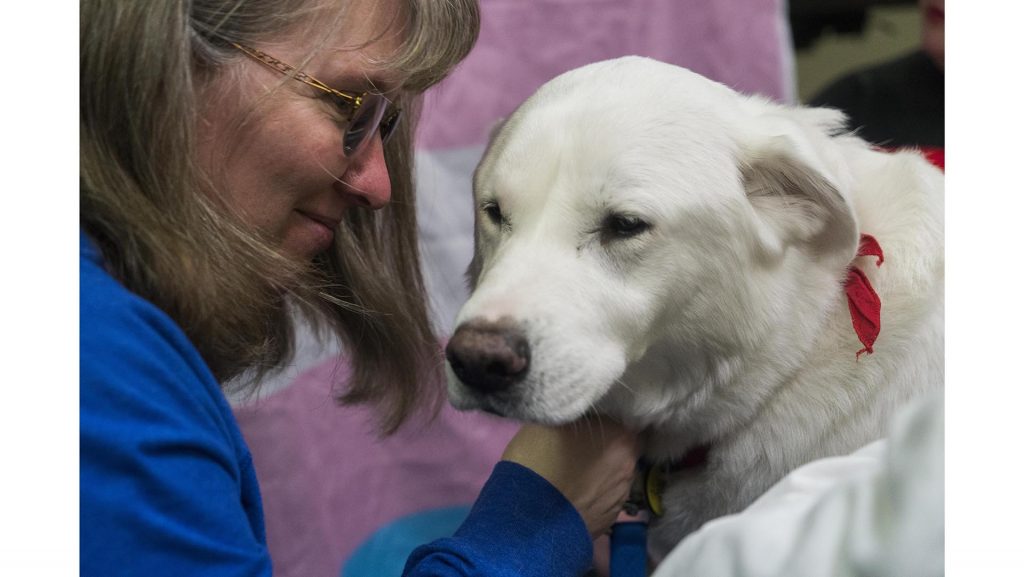Both dogs and humans benefit from quality time together through the human-animal bond.
I love dogs. I am also studying community health, so I want to write about how bringing our dogs to the dog parks is healthy. I also wanted to write about the human-animal bond. Sure, “the hab” was Matt Damon’s living quarters in the movie The Martian, but the bond is also a growing field.
The American Veterinary Medical Association states, “The human-animal bond is a mutually beneficial and dynamic relationship between people and animals that is influenced by behaviors essential to the health and well-being of both.” And the Center to Study Human-Animal Relationships and Environments opines that the human-animal bond should be included in the World Health Organization’s definition of what positively affects our health.
Pam Schreiner at CENSHARE writes about the benefits of pets in “Emerging Cardiovascular Risk Research: Impact of Pets on Cardiovascular Risk Prevention.” She notes that positive animal-human interactions correlate with less depression, anxiety, and social isolation; lower levels of the stress hormone cortisol; reduced risk of cardiovascular death in pet owners; and higher levels of oxytocin (a feel-good hormone).
RELATED: University of Iowa study finds vaccine for leishmaniasis in dogs to curb spread in humans, benefit war veterans
Animal behaviorists have demonstrated how the human-animal connection is made and strengthened through eye contact between a person and a dog. This “oxytocin-mediated eye-gaze bonding” occurs between a human and a dog making positive eye contact (the same as in parent-infant bonding), and oxytocin, that feel-good hormone, increases in both the human and the dog.
It seems important to remember that even though our dogs run and play with other dogs in the dog park — and seemingly ignore the humans — the dogs still need to be able to “check in” with their owners through eye contact. This contact, even if ever so brief, helps dogs to both feel more secure in their ability to play freely and be assured that their owners haven’t checked out on them. (Plus, the more opportunity a dog has to make eye contact with its owner, the easier it is for the owner to get the dog’s attention when it is time to leave.)
At the dog park recently, I was surprised to see some dog owners being overly attentive to their phones, not their dogs. Another time at the dog park, some of us noticed a dog looking lost; we notified a dog park staff member, who was not surprised about the situation. She said that probably either the dog’s owner was MIA (“people leave their dogs in the park to go run an errand”) or “was paying too much attention to their phone.” Geez. While the oblivious owner was checked out from the pet, I wondered how much the dog’s stress level was up from its oxytocin decreasing and cortisol increasing.
RELATED: UI Trans Alliance hosts public panel, includes therapy dogs
Iowa City’s dog parks provide wonderful opportunities for people and dogs to interact. These interactions positively affect our community’s health. We benefit from the great space by getting outdoors, combating nature-deficit disorder, meeting others, enjoying the fresh air, and strengthening the human-animal bond — all linked to better community health.
The Wisconsin-based animal behaviorist Patricia McConnell asks, “Are we doing enough for our dogs?” I would modify this some to “Are we are doing enough for our dogs’ health and our own health at the dog park?” I encourage everyone to be there for their dog when you go to the dog park. Your phone can wait. Both your dog’s health and your health will be better off for it.
— Caroline Woods, M.S., PA-C
In the M.P.H. program at the University of Iowa









